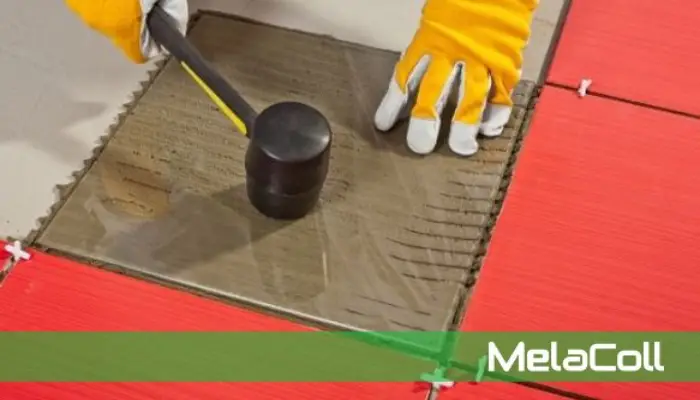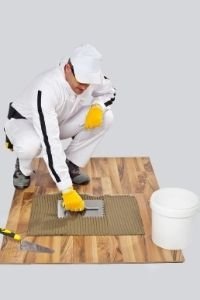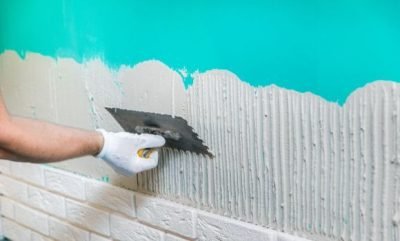
1. 소개
타일 접착제는 건설 현장에서 타일을 서로 붙이고 고정하는 데 사용되는 독특한 종류의 접착제입니다. 셀룰로오스 에테르는 중요한 세라믹 타일 접착제의 구성 요소의 실행률을 크게 향상시킬 수 있습니다. 타일 접착제 는 포틀랜드 시멘트로 구성되어 있으며 바로 사용할 수 있는 혼합물로 제공됩니다. 시멘트질 재료(유기 또는 무기)의 혼합물로, 현대의 특수 건식 모르타르의 주요 응용 분야로 사용됩니다.
타일 접착제는 타일 배치, 대형 화강암, 유리 모자이크, 광택 처리된 바닥, 주차장, 바닥, 벽, 수영장, 욕실, 주방, 외부 현장, 산업 지역 등에 타일을 배치하는 등 특정 용도에 따라 준비됩니다.
물만 섞으면 되는 혼합물로 사용이 간편합니다. 시멘트, 목재, 유리 등과 같은 다양한 기질의 타일을 고정하는 데 사용되는 유연한 소재입니다. 에폭시와 같은 폴리머와 등급 골재, 수분 유지제, 초기 강화제, 라텍스 분말 등과 같은 일부 첨가제가 혼합되어 혼합물에 섞여 있습니다. 셀룰로오스 에테르는 타일을 서로 고정하는 능력을 강화하기 위해 혼합물에 포함되는 중요한 첨가제 중 하나입니다.
2. 타일 접착제에서 셀룰로오스 에테르의 기능
타일 접착제의 성능만으로는 판단할 수 없습니다. 재분산성 폴리머 파우더 그리고 셀룰로오스 에테르 는 타일 접착제의 미끄럼 방지 성능과 작동 강도를 향상시키는 주요 첨가제입니다. 셀룰로오스 에테르는 또한 타일 접착제의 기계적 성능과 개봉 시간을 개선하고 증가시킵니다.
또한 셀룰로오스 에테르는 타일 접착제에서 세라믹 접착제의 유변학적 특성에도 영향을 미칩니다.
3. 타일 접착제의 셀룰로오스 에테르가 성능에 미치는 영향
 3.1 타일 접착제 개봉 시간
3.1 타일 접착제 개봉 시간
재분산성 라텍스 분말과 셀룰로오스 에테르의 존재는 시멘트의 수화 및 모르타르의 점도와 경화 시간에 영향을 미칩니다. 셀룰로오스 에테르는 셀룰로오스 에테르와 베이스 표면 사이의 수소 결합을 구성하는 데 도움이 됩니다. 모르타르에 물이 혼합되면 셀룰로오스 에테르가 표면에서 깊어지고 모르타르의 물이 증발하여 결과적으로 모르타르 표면에 필름이 형성되어 증발 속도가 느려집니다.
3.2 인장 결합 강도
셀룰로오스 에테르는 타일 접착제 혼합물에 섞일 때 중요한 역할을 하는 첨가제입니다. 주로 수분 유지 증점제로 사용되며 타일 접착제의 수화 경화 과정에 상당한 영향을 미칩니다. 확실한 지연 효과가 있는 셀룰로오스 에테르는 혼합물의 동적 수화 과정을 느리게 합니다.
3.3 공기 유입 효과.
고분자 계면활성제의 구조적 특성으로 인해 공기 유입 효과도 있습니다. 이 두 가지 효과는 인장 결합 강도 타일 접착제의 성능에 큰 영향을 미칩니다. 셀룰로오스 에테르마다 인장 결합 강도에 미치는 영향의 정도가 다릅니다.
3.4 미끄럼 방지 성능
셀룰로오스 에테르는 현대의 얇은 층 구조 기술에서도 중요합니다. 세라믹 타일 깔기. 타일 접착제의 미끄럼 방지 성능을 향상시키기 위한 필수 첨가제로 사용됩니다. 미끄럼 방지 성능은 주로 사용되는 셀룰로오스 에테르의 종류에 따라 결정되므로 미끄럼 방지 성능을 향상시키기 위해 특수 변형 처리를 통해 생산된 특정 셀룰로오스 에테르가 있습니다.
4. 타일 접착제용 MIKEM 셀룰로오스 에테르 제품
멜라콜은 다음의 상표입니다. MIKEM의 셀룰로오스 제품 및 유도체. 당사는 특정 산업 분야에 적합한 표준 및 맞춤형/맞춤형 등급 제품을 모두 제공합니다.
우리의 멜라콜 제품은 타일 접착제 애플리케이션에서 다음과 같은 기능을 제공합니다:
- 향상된 처짐 저항

- 향상된 작업성
- 향상된 접착력
- 내열성 및 동결 해동성 향상
- 수분 보유력 향상
헨켈은 경제적인 표준 및 프리미엄 제형을 위한 일반 및 개질 셀룰로오스 에테르와 RDP를 제공합니다. 당사의 맞춤형 솔루션은 특정 원료와 현지의 특수한 요구 사항에 가장 적합한 제품을 제공합니다. 제발 문의하기 에서 자세한 정보와 샘플을 확인하세요!


댓글 남기기